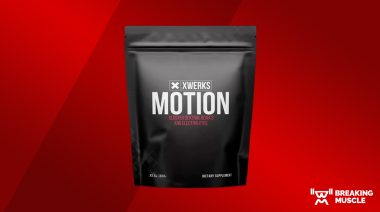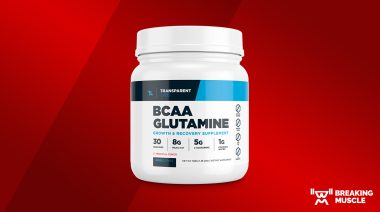L-carnitine has been a popular substance in the news lately. While its dubious negative impact to human health continues to be debated, its effects on performance will only be discovered in greater depth. L-carnitine, which I will shorten to just “carnitine,” is a non-essential amino acid. It is also a critical link in the chain of burning fat for fuel. No carnitine means no fat burning.
Despite some claims that carnitine is unhealthy, it is of extreme importance for human life. Supplemental carnitine seems to be an ergogenic aid as well, meaning it may boost athletic performance. However, until now there was little information on the dose-response of carnitine. In other words, we didn’t know if more carnitine worked better. With many biological components there’s a point of diminishing returns, so researchers performed a study, published recently in the Journal of Strength and Conditioning, to examine the dose-response of carnitine on performance.
Now don’t be fooled by the phrase non-essential amino acid. In nutrition the term essential has a specific meaning that can be confusing. To you and me, when something is essential, that means its presence is required to achieve some end. However, to a nutritionist, when something is essential that means it is required in the diet, but it isn’t a statement about its importance. Because carnitine can be synthesized (made inside the body without being consumed) from lysine and methionine, two other amino acids, it is not considered nutritionally essential.
However, as pointed out earlier, carnitine is required for health, and theoretically it is possible to interfere with the body’s ability to produce carnitine. Thankfully, carnitine is also present in the diet and supplements, making it what some nutritionists may call semi-essential, or partially required in the diet for optimal health.
So it’s no surprise the researchers in this study wanted to know if more carnitine in the diet – in this case, taken as a supplement – would boost cardio performance. Since dietary carnitine may be necessary to prevent the exhaustion of its synthesis in the body, more might be better to allow for a greater fat burn.
Interestingly, the researchers concluded there was no statistically significant difference between taking 3g of carnitine and 4g of carnitine, the two doses used in this study. However, despite this conclusion, when you look at the data this doesn’t seem to be the case. Participants who received 3g of carnitine reached a statistically significant improvement in performance – as measured by looking at the levels of fatigue markers for each speed – over those who received a placebo at every running speed tested. Participants who received 4g only performed better at the two fastest speeds than those receiving the placebo.
It should also be noted that there were definitely trends that did not reach significance, but seemed clear nonetheless. More or less across the board, when taking carnitine at any dose, athletes could maintain faster speeds with less fatigue than with placebo. Additionally, a dosage of 3g of carnitine seemed consistently better than a dosage of 4g.
While I agree with the researchers’ ultimate call for more research, this study did show that carnitine improves performance. I would also say their results suggest there is a dose relationship, but not like we may think. In this case, the slightly lower dosage of 3g of carnitine might be better than 4g, but we’ll need more and better research to find out what dose works the best.
References:
1. Erikoglu Orer Gamze, et. al., “The Effects of Acute L-Carnitine Supplementation on Endurance Performance of Athletes,” Journal of Strength and Conditioning Research, DOI: 10.1097/JSC.0000000000000204.
Photo courtesy of Shutterstock.






